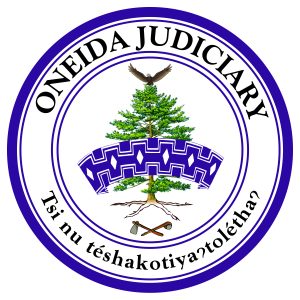Peacemaking and Mediation
Welcome to Peacemaking/Mediation, a service provided by the court to litigants. It is administered through the Trial Court. There is no cost to litigants for this service; the court absorbs all associated costs.
Peacemaking
This form of conflict resolution is a process whereby a trained facilitator or co-facilitators assist parties in reaching a mutually agreeable resolution through respectful dialogue. Native American customs and traditions may be integrated into the process.
The peacemaking process consists of defining the problem, discussing potential solutions, and agreeing to a solution. An agreement is not announced to the community.
The peacemaking process is voluntary and is available at all stages of litigation, including appeals. The court may offer the service, or either party can request it.
An agreement reached by the parties is binding and carries the same force and effect as any court order, decision, or judgment. A violation of an order that is entered as a result of peacemaking or mediation may be punishable as contempt of court.
If it is determined by the peacemaker that the parties have reached an impasse, the matter may return to court for a contested hearing.
Mediation
This form of conflict resolution is ordered by the court. Parties may be ordered to meet with a trained mediator if the court feels intervention can bring settlement, agreement, or compromise to speed up disposition of the case at hand. Parties then return to court with an agreement on which the court will act.
Forms
Intake Forms for Peacemaking or Mediation can be obtained from the Judiciary Receptionist.
Staff
The Trial Court is responsible for the administration of Peacemaking/Mediation services.






